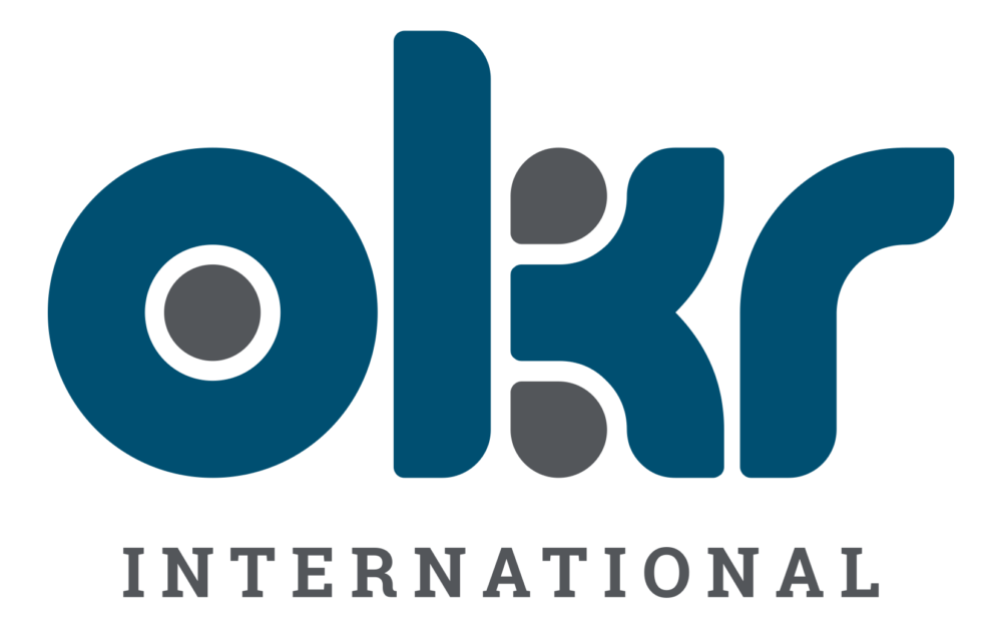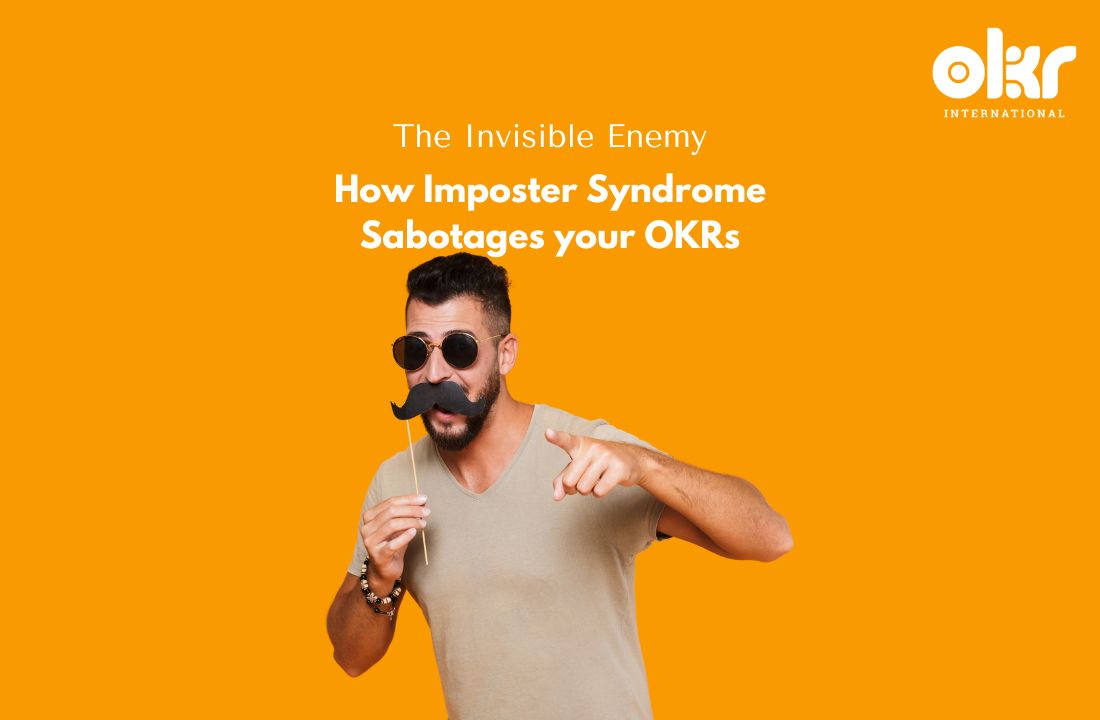The Invisible Enemy: How Imposter Syndrome Sabotages your OKRs
Understand how Imposter Syndrome impedes OKRs and acquire effective strategies to unlock your full OKR potential.
In today’s fast-paced business landscape, organizations are constantly striving to set ambitious goals and achieve tangible results. To facilitate this process, many have turned to Objectives and Key Results (OKRs), a widely adopted framework for goal setting and performance tracking. However, amidst the pursuit of OKR excellence, there is a hidden obstacle that often goes unnoticed but can significantly impede success: Imposter Syndrome. In this article, we will delve into the how Imposter Syndrome and OKRs work together, and explore strategies to conquer it, empowering individuals and teams to unlock their full potential.
Understanding Imposter Syndrome and Its Effects on OKRs
Imposter Syndrome is a psychological pattern that afflicts many individuals, regardless of their accomplishments or capabilities. It manifests as self-doubt, a constant fear of being exposed as a fraud, and attributing success to external factors rather than one’s own abilities. Recognizing the signs of Imposter Syndrome and understanding its effects on OKRs is crucial for creating an environment conducive to productive goal-setting.
The Imposter Syndrome-OKR Paradox
Imposter Syndrome creates a paradox within the realm of Objectives and Key Results, casting a shadow over their effectiveness and impeding progress and innovation. Let’s explore the three key aspects of this paradox: underestimation, reluctance, and fear.
- Underestimation of Goals
When plagued by Imposter Syndrome, individuals tend to set conservative or safe goals due to a fear of falling short of the high expectations they perceive others to have of them. Unfortunately, this cautious mindset limits the potential for growth and innovation within organizations. To truly excel with OKRs, individuals must embrace their capabilities and dare to dream big.
- Reluctance to Share Goals
Individuals grappling with Imposter Syndrome and OKRs often hesitate to openly share their goals, fearing judgment or the possibility of not measuring up. However, transparency is essential for fostering collaboration and alignment within teams. By creating an environment where individuals feel comfortable sharing their aspirations, organizations can unlock the power of collective effort.
- Fear of Evaluation and Feedback
Imposter Syndrome instils a deep-seated fear of evaluation and feedback, hindering individuals from fully embracing the iterative and developmental nature of OKRs. Embracing evaluation as an opportunity for growth and improvement is paramount in the pursuit of success. Organizations must cultivate a culture that encourages continuous learning, where feedback is seen as a valuable tool for personal and professional growth.
Strategies to Overcome combining Imposter Syndrome and OKRs
To conquer Imposter Syndrome and unleash the full potential of OKRs, organizations and individuals can employ various strategies.
- Cultivate a Growth Mindset
Foster a culture that embraces learning, growth, and resilience. Help individuals understand that setbacks and mistakes are not signs of incompetence but rather opportunities for improvement. By cultivating a growth mindset, organizations can create an environment where experimentation and learning from failures are valued and celebrated.
- Provide Support and Recognition
Regularly acknowledge and celebrate achievements, big and small, to boost confidence and combat feelings of being an imposter. Support individuals in overcoming self-doubt by providing constructive feedback, mentoring, and coaching. A supportive ecosystem that fosters personal and professional growth can go a long way in mitigating the effects of Imposter Syndrome.
- Foster Collaboration and Peer Support
Encourage open communication and collaboration within teams. Create spaces where individuals can share their goals, challenges, and successes, fostering a sense of community and support. Peer support can be instrumental in alleviating the feelings of isolation that often accompany Imposter Syndrome, allowing individuals to realize they are not alone in their experiences.
Resilient OKRs – The Key to Safeguard against Imposter Syndrome
To build resilience against Imposter Syndrome and ensure sustainable progress, organizations can consider the following strategies.
- Set Stretch Goals
Encourage individuals and teams to set ambitious yet attainable goals. By challenging themselves, individuals can push beyond their comfort zones, expand their capabilities, and build resilience against the effects of Imposter Syndrome. It is through these audacious goals that true growth and development occur.
- Break Goals into Smaller Milestones
Dividing larger goals into smaller, manageable milestones allows for a sense of progress and achievement along the way. This incremental approach helps mitigate the overwhelming feelings that often accompany Imposter Syndrome, making the journey towards OKR success more manageable and fulfilling.
- Embrace Failure as a Learning Opportunity
Shift the perspective on failure from one of shame and inadequacy to that of a valuable learning experience. Encourage a culture of experimentation, risk-taking, and learning from mistakes as integral parts of the OKR process. By doing so, organizations can foster an environment where individuals feel empowered to take calculated risks and embrace the growth that comes from learning.
Addressing Imposter Syndrome at the Organizational Level
Imposter Syndrome not only affects individuals but can also permeate organizational cultures and dynamics, hampering OKR success. To mitigate its effects, organizations can take proactive steps.
- Promote Psychological Safety
Establish a culture that values open communication, trust, and psychological safety. Encourage individuals to share their thoughts, ideas, and concerns without fear of judgment or negative repercussions. By cultivating a safe space for expression, organizations enable individuals to overcome Imposter Syndrome and contribute wholeheartedly to the success of OKRs.
- Provide Training and Development
Offer training programs and workshops that focus on building self-confidence, resilience, and self-awareness. These initiatives equip individuals with the tools necessary to recognize and overcome Imposter Syndrome, enabling them to set and pursue ambitious OKRs with confidence.
- Lead by Example
Leaders play a pivotal role in shaping organizational culture. By openly acknowledging their own challenges and vulnerabilities, leaders create a safe space for others to do the same. Sharing personal experiences and demonstrating authenticity can inspire individuals to overcome Imposter Syndrome and strive for excellence in OKR attainment.
Conclusion
Imposter Syndrome can be a significant hurdle in the realm of OKRs, hindering individuals and organizations from realizing their full potential. By understanding its impact, implementing strategies at both the individual and organizational levels, and fostering a culture of support and growth, organizations can conquer this invisible enemy. Authenticity, resilience, and collaboration are the keys to unlocking true potential and achieving remarkable success with OKRs. So, let’s cultivate a mindset that celebrates growth, embraces challenges, and paves the way for OKR excellence.
OKR International: Your Partner in Success
When you choose OKR International, you are not just selecting a training provider, but a partner in your journey towards professional excellence. With their cutting-edge OKR Coach Certification program, they offer unparalleled support and guidance, equipping you with the skills to drive success within your organization.
C-OKRP™
OKR Coach Certification
- 16 Credit Hours from ICF/HRCI
- 2 Days Immersive learning
- Digitally Verified Badge
OKR-FC™
Laser-Focused 2.5 Hours on OKRs
- Great to get started with OKRs
- Ideal to create awareness across organization
- Digitally Verified Badge


